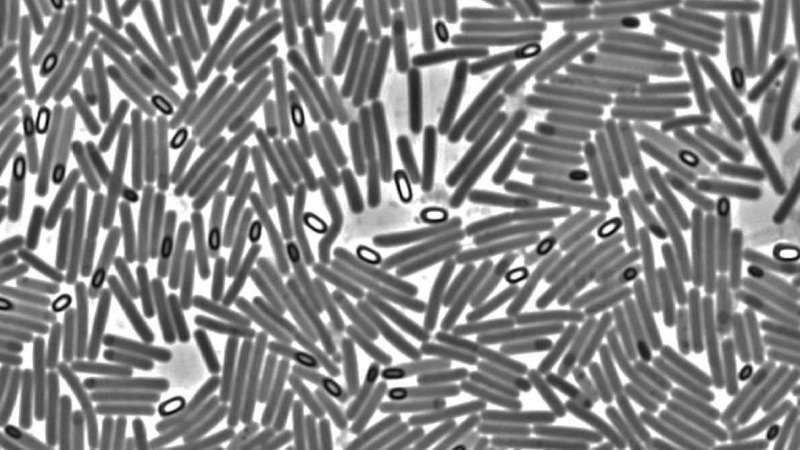A moveable feast: Antibiotics give C. diff a nutrient-rich environment, no competition

Using a mouse model, researchers from North Carolina State University have found that antibiotic use creates a "banquet" for Clostridium difficile (C. diff), by altering the native gut bacteria that would normally compete with C. diff for nutrients. The findings could lead to the development of probiotics and other strategies for preventing C. diff infection.
C. diff is a harmful bacterium that can cause severe, recurrent and sometimes fatal infections in the gut. Although the bacteria are commonly found throughout our environment, C. diff infections primarily occur in patients who are taking, or who have recently finished taking, antibiotics.
"We know that antibiotics are major risk factors for C. diff infection because they alter the gut microbiota, or composition of bacteria in the gut, by eliminating the bacteria that are normally there," says Casey Theriot, assistant professor of infectious disease at NC State and corresponding author of a paper describing the research. "Our latest work suggests that the microbiota may provide natural resistance to C. diff colonization by competing with C. diff for nutrients in that environment; specifically, for an amino acid called proline."
Theriot and postdoctoral fellow Joshua Fletcher introduced C. diff to antibiotic-treated mice and monitored their gut environment at four intervals: 0, 12, 24, and 30 hours after introduction. They conducted metabolomic and RNA sequencing analysis of the gut contents and the C. diff at these time points to find out which nutrients the bacteria were "eating." Metabolomics allowed the team to trace the abundance of the nutrients in the gut, and RNA analysis indicated which genes in the C. diff were active in metabolizing nutrients.
The researchers found that the amount of proline in the gut decreased as the population of C. diff increased. Additionally, the amount of a proline byproduct called 5-aminovalerate also increased, indicating that C. diff was metabolizing the proline. The RNA analysis further confirmed C. diff's use of proline, as genes related to proline metabolism in C. diff increased during the early stages of colonization, when proline was abundant.
"We've been able to show that in the absence of competition C. diff is metabolizing proline and other amino acids in the mouse model, using it as fuel to survive and thrive," Theriot says. "Hopefully this information could lead to the development of better probiotics, or 'good' bacteria that can outcompete C. diff for nutrients in the gut. The ultimate goal is to control these bacteria in ways that don't rely solely on antibiotics."
The research appears in mSphere.
More information: Joshua R. Fletcher et al, Shifts in the Gut Metabolome and Clostridium difficile Transcriptome throughout Colonization and Infection in a Mouse Model, mSphere (2018). DOI: 10.1128/mSphere.00089-18

















